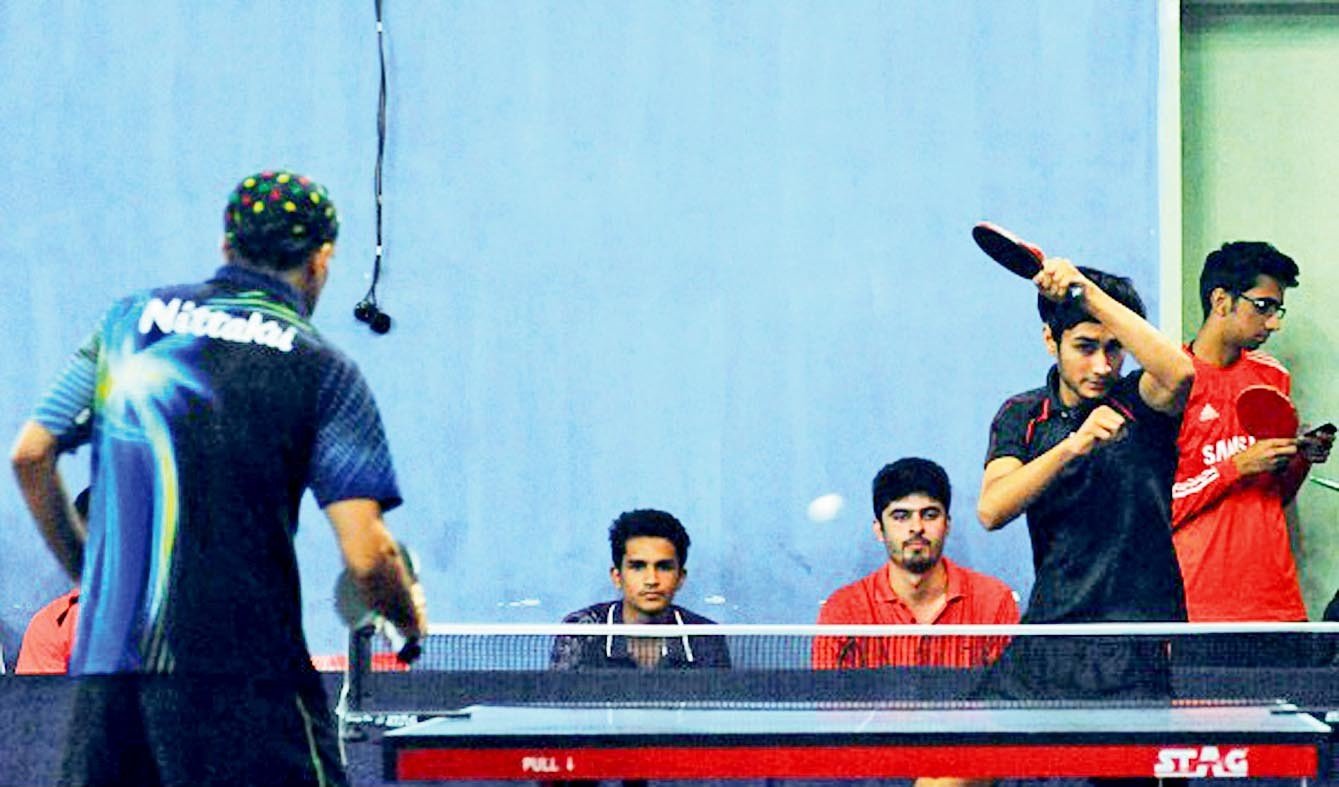
It seems that there isn’t much hope for a sport that was once quite popular in the country and produced several world class players

Pakistan’s table tennis has been passing through the most challenging phase of its history as the country has lost its gloss on the international circuit.
The international environment has been too competitive and it has become very difficult for national players to make their presence felt at any major stage.
There was a time when table tennis was very popular in Pakistan. The country produced solid players who were capable of beating even the best players on the international circuit.
From 1984 to 1990, Pakistan twice finished sixth in the Asian Championships -- the top five used to be table tennis giants China, South Korea, North Korea, Japan and Taiwan. Javed Chotani won singles gold medal in the World Junior Table Tennis Championships in Egypt in 1979.
In 1984-85, Pakistan’s prolific player Arif Khan achieved 17th rank in Asia and 67th in the world, which remains the best from a Pakistani player.
Arif also won three gold medals in the South Asian Games, two in singles and one in doubles while pairing up with Nazo Shakoor. Farjad Saif was part of Pakistan’s Seoul Olympics contingent in 1988.
Former secretary of Pakistan Table Tennis Federation (PTTF) SM Sibtain played a big role in the transformation of the game in Pakistan in that era.
He served as PTTF secretary for three successive four-year tenures with SH Shah of Railways serving as president.
Sibtain, a former bureaucrat, provided quality training facilities and ample international exposure to the budding players. The stints of the two Chinese coaches, Tien and Yao Chen Xu, yielded good results.
Sibtain would bring sponsorship by using his influence. Karachi and Punjab produced top talent. In that period Pakistan rose to the second division of the World Championships. However, since 1992 the standard of the game has been on the decline. In the age of table tennis glory, Sibtain was acting as PTTF secretary but was influential enough to bring in sponsors.
The same Sibtain the other day retained his seat as the PTTF chief. In his previous tenure he had no strong secretary and he mostly had to do what a secretary does. This time Punjab Tourism Development Corporation Managing Director Ahmer Mallick has been elected as the secretary. It is expected that Ahmer may play a positive role in bringing sponsors.
I have been told that Sindh’s Tauqeer Muhajar, who has been elected as the treasurer, has strong connections and may bring in money. What Sibtain should do before setting goals for himself in his fresh tenure is to bring in all the aggrieved persons at one table and regain their support. Those who walked out of the electoral meeting held at Karachi Gymkhana the other day may create problems for the PTTF in future.
Every individual who is part of the table tennis community is important and their support must be obtained for smooth functioning of the federation.
Sibtain in his new tenure should focus on school table tennis. It would be great if he introduced a national event at the school level and made it an annual feature.
There is an intense need of establishing academies at various regions of the country and jobs for the leading players so that they could cope up with their monetary problems.
The PTTF will have to increase its national level events and ensure consistent foreign exposure for the budding players.
Sibtain, who also holds offices at the Asian Table Tennis Union (ATTU) and International Table Tennis Federation (ITTF), should establish a strong connection with the Pakistan Sports Board (PSB) and Ministry of Inter-Provincial Coordination (IPC). Without doing that, it would not be possible for the PTTF to get fair treatment from the government.
Hiring of a foreign coach for a long period would be of high value, too.
The PTTF’s performance in the last four years has not been good and Sibtain admits it. "I am not satisfied with what we have done in the past four years," Sibtain told ‘The News on Sunday (TNS)’ in an interview. "We aim to do more. We will try our best to make ourselves economically independent. If we are able to bring in product, we will sell it to private sector and then the government will also have to support us," Sibtain said.
"I still give priority to Khyber Pakhtunkhwa which is producing quality stuff. We will use KP’s product as a model in both Punjab and Sindh. Karachi Table Tennis Association (KTTA) has been doing a great job and is resourceful enough. I am confident we will be able to make the playing environment healthier in the coming few years," Sibtain said.
"We also will try to develop the sport in Balochistan. We are going to hold the Balochistan Table Tennis Association’s (BTTA) elections in near future. We have framed rules for clubs and associations and every effort will be made to bring improvement," Sibtain said.
He said that Pakistan has a pool of over 25 qualified coaches and the services of former international players would also be taken for preparing talented stuff for future national duty.
"We are developing a coaching programme and I hope it will yield good results," Sibtain said.
The PSB also should play a role in encouraging coaches by announcing good incentives for them. The Board should give salaries to the coaches according to their skills and qualification.
I believe that the country is brimming with talent but there is a need to work selflessly for table tennis promotion. The table tennis community will need to shun its differences and work devotedly for the revival of the sport.
Commonwealth Games to be held in Australia in April is the next target of national table tennis players. Two boys and two girls will be representing the nation in individual events.